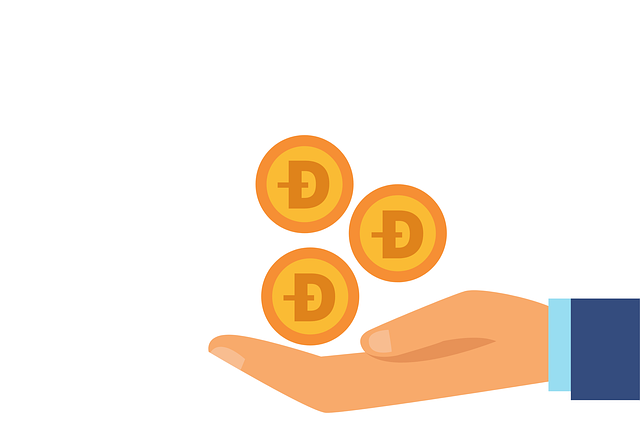Dogecoin, born as a lighthearted meme coin, has evolved into a significant cryptocurrency with global recognition. Its rapid growth in 2021 was fueled by online communities and influencers, solidifying its position despite initial doubts. Dogecoin's legal classification is a contentious issue, bridging traditional currencies and digital assets. Its decentralized nature poses challenges for regulators, leading to varying global adoptions and compliance complexities, particularly with AML/KYC regulations and taxation. As DOGE gains popularity, intellectual property rights become a concern, and the evolving regulatory landscape will shape its future as a legitimate digital currency.
“The rapid ascent of Dogecoin, a meme-inspired cryptocurrency, has captivated investors and legal experts alike. This article navigates the intricate legal landscape surrounding Dogecoin, exploring its origins and rapid rise to prominence. We delve into its distinct features, questioning its classification as a commodity, security, or currency. Additionally, we examine regulatory challenges, tax implications for holders, intellectual property rights issues, and potential future legal scenarios shaping the dogecoin ecosystem.”
- Dogecoin's Origin and Rise to Prominence
- Understanding the Cryptocurrency's Unique Characteristics
- Legal Classification: Is Dogecoin a Commodity, Security, or Currency?
- Regulatory Challenges and Compliance Considerations
- Tax Implications for Dogecoin Holders
- Intellectual Property Rights and Dogecoin-Related Disputes
- The Future of Dogecoin: Potential Legal Scenarios
Dogecoin's Origin and Rise to Prominence

Dogecoin, often referred to as the “joke coin,” emerged in 2013 as a playful twist on cryptocurrency. It was created by software engineers Billy Markus and Jackson Palmer with the intention of challenging the seriousness of the cryptocurrency market at the time. The coin’s logo, featuring a Shiba Inu dog from the “doge” meme, quickly became iconic and contributed to its widespread adoption.
What started as a lighthearted venture gained significant traction, particularly in 2021, when Dogecoin witnessed a remarkable surge in value. This sudden popularity was fueled by online communities, social media campaigns, and notable advocates like Elon Musk. The coin’s unique blend of humor and potential sparked interest from investors worldwide, solidifying its place as one of the most recognized cryptocurrencies, even beyond the initial meme-driven fascination.
Understanding the Cryptocurrency's Unique Characteristics

Dogecoin, a cryptocurrency that started as a joke, has since evolved into a fascinating example of decentralized digital money. Its unique characteristics set it apart from other coins like Bitcoin or Ethereum. One key aspect is its community-driven nature, with an active and passionate group of supporters who have contributed to its growth and popularity. This community engagement is often cited as a reason for Dogecoin’s resilience and ability to withstand market volatility.
Additionally, Dogecoin benefits from a lighter regulatory touch compared to traditional currencies. Its early adoption as a meme coin has led to less stringent oversight, allowing it to flourish in a relatively unregulated environment. This freedom has encouraged innovation within the project, with various initiatives focusing on expanding Dogecoin’s utility and integrating it into everyday transactions, further solidifying its position in the ever-evolving cryptocurrency landscape.
Legal Classification: Is Dogecoin a Commodity, Security, or Currency?

The legal classification of Dogecoin (DOGE) has been a topic of discussion and debate among experts, as it blurs the lines between traditional currencies and digital assets. At its core, DOGE functions similarly to other cryptocurrencies, with transactions recorded on a decentralized blockchain network. This raises the question: is it primarily a commodity, a security, or a currency?
From a legal perspective, commodities are typically defined as basic goods used in trade, while securities represent financial instruments subject to regulation. Currencies, on the other hand, are typically regulated by governments and central banks. Dogecoin enthusiasts argue that its decentralized nature and community-driven development set it apart from traditional currencies. However, its potential for investment and speculative trading has led some to view DOGE as a security, similar to other cryptocurrencies like Bitcoin and Ethereum. This classification would trigger regulatory oversight and restrictions on its exchange and distribution. Understanding the exact legal standing of Dogecoin is crucial for navigating the evolving regulatory landscape surrounding digital assets and ensuring compliance with relevant laws.
Regulatory Challenges and Compliance Considerations

The legal landscape surrounding Dogecoin (DOGE) is a complex web that presents significant regulatory challenges and compliance considerations for both developers and enthusiasts. As a decentralized cryptocurrency, DOGE operates outside traditional financial systems, making it difficult for regulators to apply existing laws effectively. This has led to varying interpretations of jurisdiction and oversight, with some countries embracing DOGE while others remain cautious or outright ban it.
Compliance with anti-money laundering (AML) and know-your-customer (KYC) regulations is a particular hurdle. Since DOGE facilitates anonymous transactions, ensuring the prevention of illicit activities like money laundering and terrorist financing requires innovative solutions. Developers must navigate these regulatory hurdles by implementing robust Know Your User (KYU) practices, enhancing transaction transparency, and collaborating with regulators to establish clear guidelines for compliance.
Tax Implications for Dogecoin Holders

Dogecoin holders should be aware of potential tax implications as the cryptocurrency’s popularity grows. Since Dogecoin operates on a decentralized network, its taxation is complex and largely uncharted territory for many governments. The lack of clear regulations means that individuals who have accrued significant gains from holding or trading Dogecoin may face an uncertain tax future.
In many jurisdictions, cryptocurrencies are considered personal property, subject to capital gains taxes when sold. This could mean substantial tax liabilities for those who have seen the value of their Dogecoin investments appreciate significantly over time. Additionally, income generated through cryptocurrency mining or staking might also be taxable, further complicating matters for Dogecoin enthusiasts. It’s crucial for holders to consult with financial and legal professionals to navigate these complexities and ensure compliance with evolving tax regulations surrounding Dogecoin.
Intellectual Property Rights and Dogecoin-Related Disputes

The legal landscape surrounding Dogecoin, like any cryptocurrency, is complex and evolving, particularly when intellectual property rights come into play. As Dogecoin has gained popularity, disputes related to its use have arisen, testing the boundaries of copyright, trademark, and other IP laws. For instance, the unique meme-inspired design of Dogecoin’s logo has led to discussions about copyright infringement when used commercially without permission. This is especially relevant in today’s digital era where content can spread rapidly online.
Moreover, the decentralized nature of Dogecoin creates challenges in establishing ownership and liability. In cases where Dogecoin is involved in transactions or disputes, determining jurisdiction and applicable laws can be intricate. As such, creators and users must navigate this evolving legal landscape to ensure compliance and protect their rights in the ever-shifting world of cryptocurrency.
The Future of Dogecoin: Potential Legal Scenarios

The future of Dogecoin holds immense potential, but it is also shrouded in legal uncertainties. As a decentralized cryptocurrency, Dogecoin’s regulatory landscape is complex and constantly evolving. One possible scenario involves increased regulation as governments worldwide grapple with the rising popularity of cryptocurrencies. This could lead to clearer guidelines for trading, exchanging, and holding Dogecoin, providing more stability for its growing community.
However, another legal scenario could involve challenges related to anti-money laundering (AML) and know-your-customer (KYC) regulations. The anonymity often associated with cryptocurrencies like Dogecoin has been a point of contention, prompting potential stricter oversight. Compliance with these regulations would be crucial for Dogecoin’s adoption in mainstream financial systems, opening up new opportunities for integration and acceptance as a legitimate form of digital currency.
Dogecoin’s legal landscape is a complex web that continues to evolve with its growing popularity. As this cryptocurrency navigates uncharted regulatory territories, understanding its unique characteristics and legal classification is essential for holders, investors, and developers alike. The future of Dogecoin may be shaped by emerging compliance standards and tax regulations, while intellectual property disputes could further define its digital footprint. Staying informed about these developments is crucial to ensuring a robust and secure environment for all participants in the Dogecoin ecosystem.






Leave a Reply
You must be logged in to post a comment.